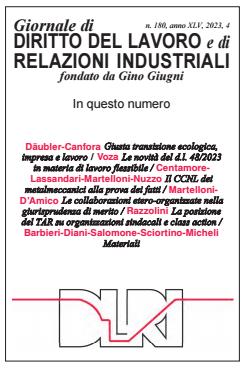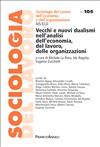
L’articolo presenta una ricerca sulle relazioni industriali di secondo livello nel distretto manifat-turiero bresciano, uno dei principali su scala nazionale. Lo studio analizza con una metodologia quantitativa multivariata il contenuto di 643 accordi aziendali, siglati da 319 imprese dal 2016 al 2019. Il fine principale della ricerca è costruire una prima tipizzazione delle imprese, che consideri in un unico quadro analitico sia le loro caratteristiche economico-organizzative, sia le relazioni industriali decentrate che esse tendono a generare nel tempo. Le analisi hanno fatto emergere quattro gruppi d’imprese con caratteristiche, assetti e strategie differenti. Nel com-plesso, oltre a discutere dell’elevato livello di eterogeneità delle relazioni industriali decentrate nel territorio in esame, gli Autori presentano le pratiche più virtuose e maggiormente meritevoli di attenzione a livello normativo.







